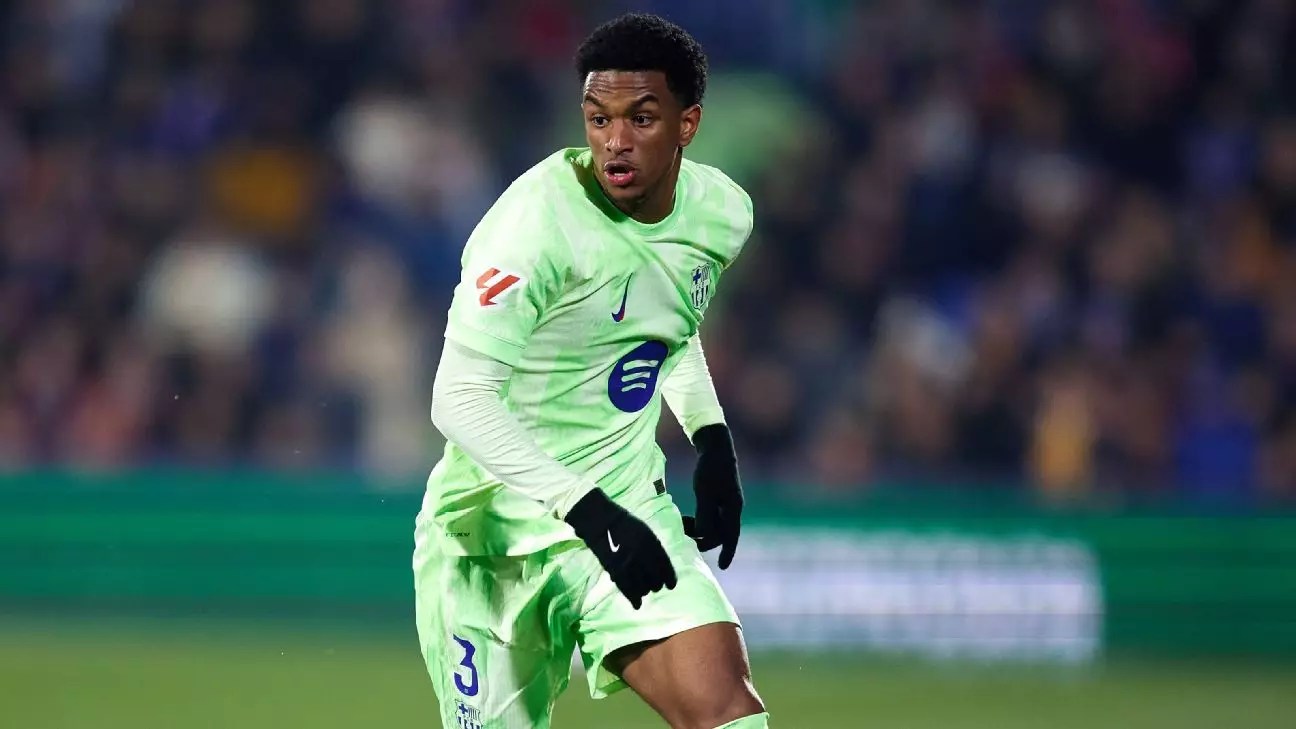In a disheartening episode during the recent LaLiga match between FC Barcelona and Getafe, Barcelona defender Alejandro Balde brought to light the unrelenting issue of racial abuse within the sport. The match, hosted at Getafe’s Coliseum, ended in a 1-1 draw, but the focus quickly shifted from the result to a more pressing concern: Balde’s experience of being racially targeted by some fans. The left-back, who is Black, disclosed that he faced numerous racist taunts during the first half, prompting him to inform referee Pablo González Fuertes about the incident. This revelation not only highlights the persistent issue of racism in football but also raises questions about the adequacy of protocols in place for combatting such vile behavior.
LaLiga has established procedures designed to address instances of racial abuse during matches. Upon receiving a report from a player regarding racist behavior, the referee is empowered to halt the game and initiate a league-mandated protocol. This involves announcements over the stadium’s public address system that inform spectators about the situation and warn that continued abuse could lead to the game being suspended. This structure, while commendable, reveals the inadequacies of response mechanisms when the frequency of such incidents is so alarming. For players like Balde, these measures may feel insufficient when confronted with the reality of hostile spectators. The incident during Balde’s match indicates a need for greater clarity and enhancement of these protocols to ensure that they are genuinely effective.
The reactions following Balde’s experiences underscore the collective responsibility that football institutions, teams, and fans must shoulder. Barcelona’s coach, Hansi Flick, condemned the actions of those who hurled insults at Balde, stating emphatically that such behavior is unacceptable both in sport and society at large. His call for fans to foster a culture of respect is critical and echoes sentiments shared by many in the football community. This stance from high-profile figures in football is essential in engendering a culture that vehemently opposes racism, but it also highlights the necessity of a comprehensive strategy that extends beyond mere condemnation.
The incident involving Balde is not an isolated case; similar instances have plagued Spanish football, indicating a deeper systemic issue. The day of Balde’s incident also saw Elche’s defender Bambo Diaby endure racial abuse during a match against Sporting Gijón. This recurrence begs the question of how football’s governing bodies can effectively tackle the root causes of racism. Although measures have been taken—for instance, Valencia fans receiving jail sentences for racially abusing Vinícius Júnior—there is a clear need for more consistent enforcement of disciplinary actions. The perception that racism is tolerated has roots that extend beyond isolated incidents, and it is imperative for the sport to confront this head on.
As LaLiga, clubs, and the wider football community grapple with these realities, what is needed is not just strong rhetoric but proactive measures and unwavering commitment to change. Initiatives aimed at education within fan bases are essential; fostering understanding and empathy can be a powerful antidote to ignorance and hatred. Furthermore, there must be a commitment to enforcing strict punishments for those found guilty of racial abuse, sending a resounding message that such behavior will not be tolerated. The actions of individuals at matches should be scrutinized, and community voices must come together to advocate for a zero-tolerance policy towards racism.
The ongoing plight against racism in sports, as epitomized by Alejandro Balde’s experience, serves as a clarion call for all stakeholders involved in football to take decisive actions. By championing unity and promoting an inclusive environment, the beauty of football can flourish, free from the blot of racism that threatens its integrity. The journey toward achieving this goal is undeniably challenging, but it is a path that must be pursued with urgency and dedication.


Leave a Reply